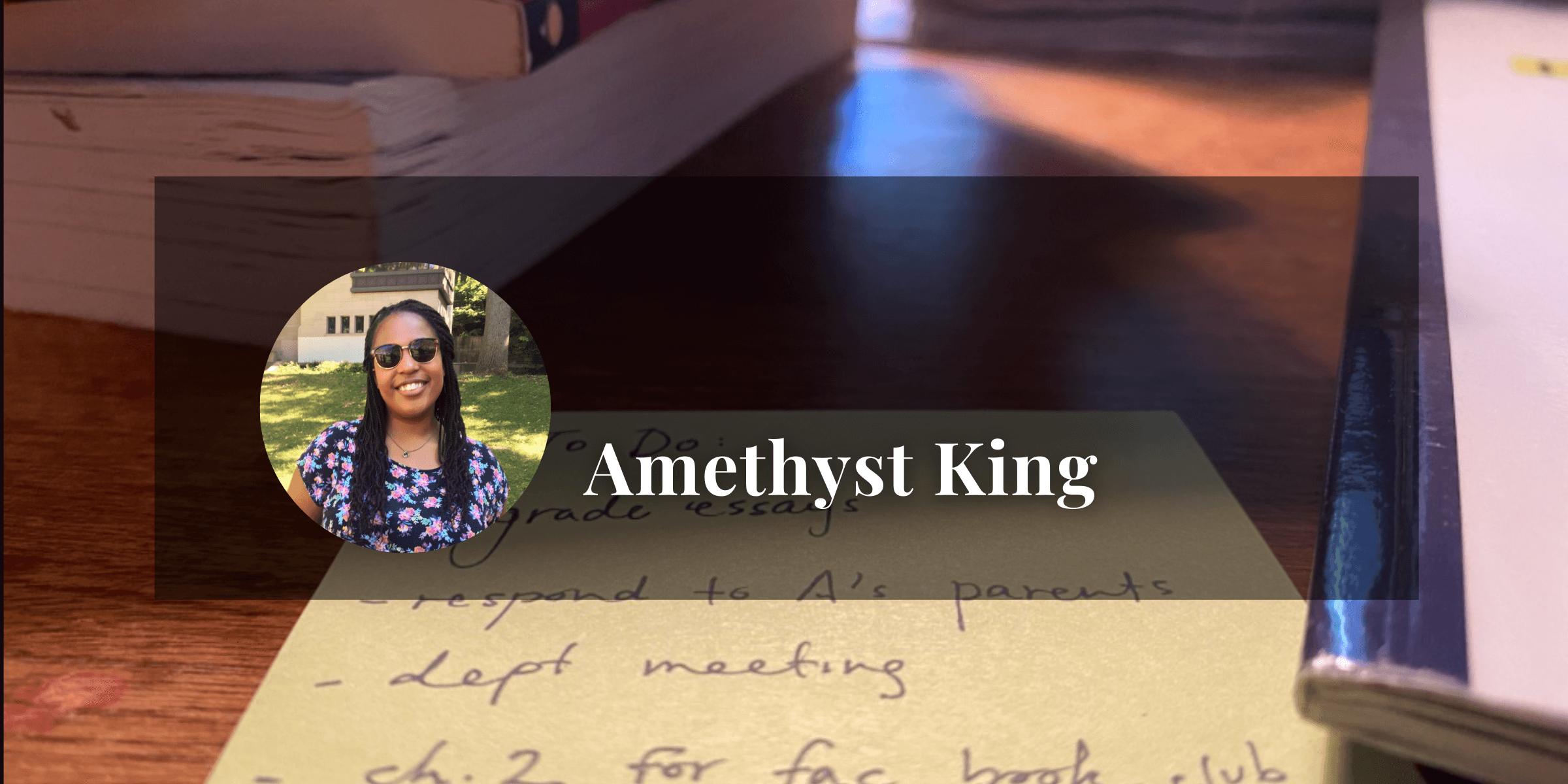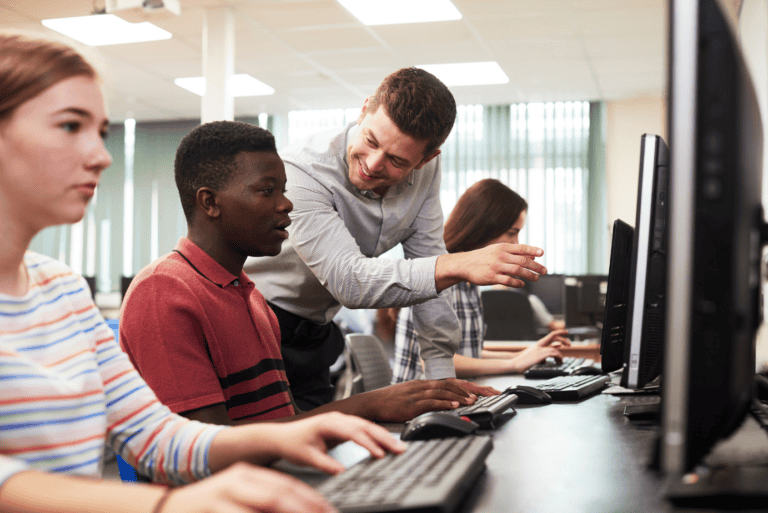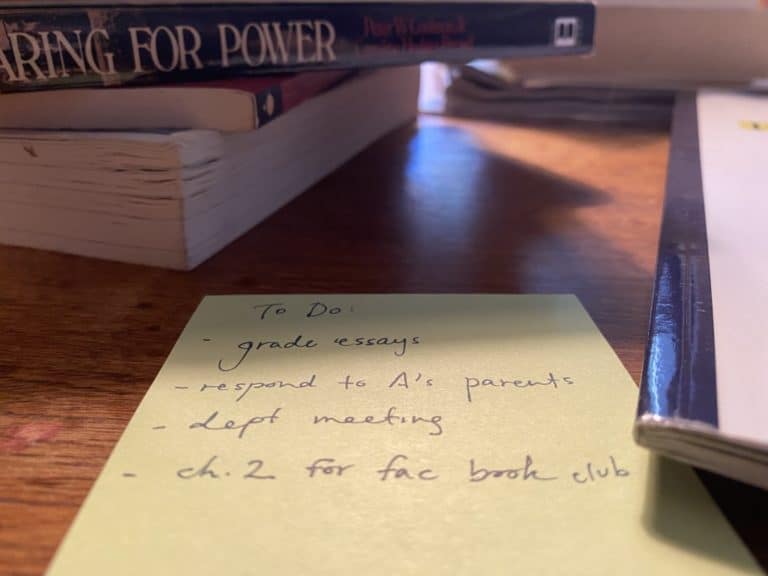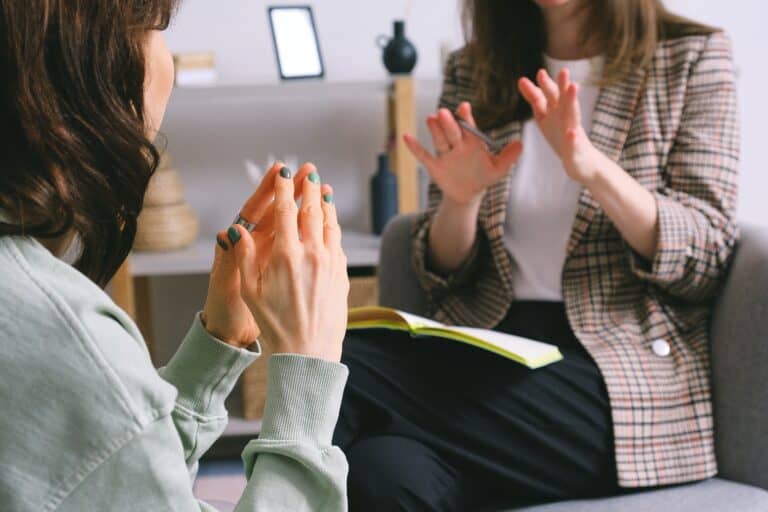Protagonists: 20 Minutes with Amethyst King
The Protagonists series highlights the main characters of our mission: the teachers out there hustling to make their students feel known, heard, and challenged through student-led discussion.
Amethyst King, teacher at THINK Global School
Hometown I grew up in Topeka, Kansas. Even though it’s the capital of the state, it still feels like the middle of nowhere. Now I call Denver home, but I went to high school in Georgia and college in New York so I’d say I’m from all over the US.
Favorite teacher growing up: who and why? I had a really great high school English teacher; we’re still in contact. She really saw me as a full person, and that’s why we connected. I opened up to her a lot, and that was especially important because there was a lot of turbulence in my life in high school. It was nice to have an adult there who I could really trust and who supported me. I loved the content of her class, but she really met me on a personal level.
Describe yourself as a student in three words I was very intense about grades and college. I see that in my students and even though I tell them grades aren’t all that matters, it’s like looking at my younger self. I also knew how to check all the boxes of school without putting in too much effort, especially with subjects I wasn’t very interested in.
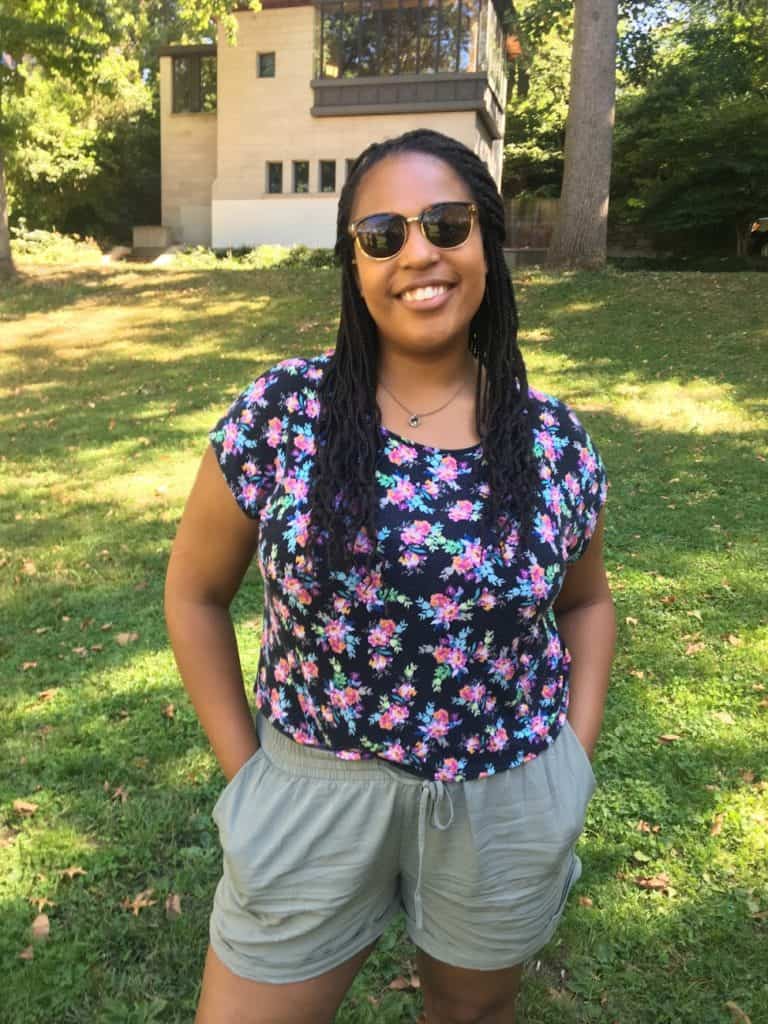
Current City, School, Teaching Assignments I teach at THINK Global School, where I began working recently after two years at the Lawrenceville School. TGS is hard to describe, as it’s very different from traditional school. Everything is student-led and project-based, so there’s a great intermingling between academic rigor and student interest. All students work on personally-designed projects while also completing teacher-led modules. There are eight educators on staff, but we don’t have specific content in mind; our modules are focused on developing skills using the content and context of the place where we’re teaching. In Maun, Botswana, the most recent base, the module was based on storytelling. Then, in a few days, we’ll go to Oaxaca Mexico, where I’ll lead a module on Architecture, Anthropology, and Sustainability. There are a series of learning targets the students have to attain before graduation and they choose modules based on that requirement and their own interests. In addition to modules, I also lead the 10th and 12th grade academic writing classes.
Favorite historical figure (or best line from history?) I can’t really think of a figure that stuck with me from history classes and I think part of the reason is the lack of figures I could relate to. The few Black women whose stories I saw were always connected to a specific history of trauma and oppression that was fairly dehumanizing. I’d have loved to see stories of people who looked like me that were as agentic, global, and even joyful that I heard about other historical figures.
Favorite literary character (or best line from a novel?) Books that you read when you are young really stick with you and that’s what I’ll say The Hunger Games’s Katniss Everdeen. She went through so many challenges in the series and I liked how it all was present in the story of who she was without the common narrative of suffering that “everything happens for a reason” or “bad things are necessary to appreciate good things.” Instead, her character really believed that those things should never have happened, they didn’t happen for any reason, and they shouldn’t happen to anyone ever again.
Favorite school supply? Teaching in Botswana was so interesting because we didn’t have much in the way of school supplies. In most of our global locations we’re in or close to a city, but it was the first time back to traveling after Covid and the school wanted to be near wildlife, so we were 30 minutes away from the nearest village, staying in a lodge. It was intense to live and work all together for the whole trip. Although we did a lot with laptops, the wifi was spotty and so we really just used paper and pencil. It showed how much we could do with so little. We went on safaris and spent so much time out in the field, and students really learned without all of the supplies I used to think was necessary.
Pet peeve about class (student-led?) discussion? You’ll always have external processors and students who are more internal and of course, one of those internal processors is going to have really amazing ideas that they might not feel comfortable sharing. I’ve learned a lot about respecting those boundaries and finding ways for students to contribute that aren’t verbal, but I do still believe that being able to articulate your thinking is an important life skill. Another pet peeve comes from the way that a lot of students, because they’re so much more exposed to ideas on social media, have all these concepts and buzzwords in their back pockets, but they don’t know what those words mean when they use them. In Botswana, students would just spew words like “colonialism!” without any background knowledge about what colonialism actually looked like there. I always think it’s important to have a grounding of facts before you can have a meaningful “big picture” discussion.
Favorite moment of class discussion? I love when kids just forget about the “school of it all” and that I’m a teacher. At TGS, we’re all called by our first names, and while that was an adjustment for me coming in, there are so many moments when it helps them to forget that this experience is school. They just ask genuine questions and then, together, we pursue what they’re interested in. Those moments at the dinner table or in a car going somewhere have been my favorite.
Text you count on to inspire conversation? I really like using visual primary sources, and generally primary sources that represent different perspectives. I like them to ask the “whys” and have them explain the differences between the sources. And visual sources are always great because they push students to observe before inferring. “That’s a car” “well how do you know?” It annoys them sometimes, but it requires them to think deeply and challenge their assumptions.
What do you nerd out about? I’m a big rewatcher and rereader, so I love nerding out on things I enjoyed from my childhood. I love revisiting Harry Potter across all these ages in my life and taking a new message or perspective every time. I do the same with music (Manchester Orchestra) and poetry (Anis Mojgani).Returning to media is something I get excited about.
What is your wish for this world? More empathy! I think a lot of situations are actually quite simple when you look at it through the lens of “we should care about other people.” It’s strange to me that believing in that statement has been so politicized and polarizing.
When historians recount 2020-21, what will they be especially fascinated by? What’s culturally relevant. I really got into a TikTok spiral during the pandemic. It’s so fascinating what we gravitate towards in hard times and isolation. I think historians will also be compelled by how fleeting a lot of things have been. Everything from Black Lives Matter to a TikTok dance can be a social trend that comes and goes out of public attention. What makes something culturally relevant and what does its relevance say about our social, cultural, and economic reality? What makes it stick and not stick?
One prediction for the future of schools? I think that my prediction is a little cynical. As much as I hope for the opposite, I think schools are going to get more unequal. I come from a low income community, and my first teaching jobs have been at some of the most resourced schools in the country. At TGS, students get $2000 per year for their personal project budgets. I love teaching in these places because I get to use these resources too and do so much with kids, but I would hope that all kids would have that. Our society isn’t headed that way, so it’s hard to see schools doing that. Compared with my own experience, what I see around me seems unreal. Students getting iPads and film-quality cameras? Daily safari drives? Living in a lodge with housekeeping and a pool? Like, what is this? I wish that all kids could have opportunities even close to this.
Best advice given to you by a department chair or supervisor? At my last job, I was given an offer to stick around after my teaching fellowship and being young, being a woman, and being a teacher, I’ve been socialized to be selfless. When people wanted me to stay and it would be a burden to have to hire someone, I felt like I should do that. But my department chair said to me to “put yourself first.” and affirmed that travel was what I wanted, so that’s what I should do. That was really good advice.
Educator-Influencer you count on? First place you turn for classroom advice? In terms of people I reach out to, I don’t have one specific person. I’ve been blessed to have really supportive colleagues in my very short teaching career. I feel like I can reach out to whoever’s closest to me. There are so many things that you just need another ear for and I’ve been surrounded by people who are willing to provide that.
Better class discussions will __________ Lead to better adult conversations, more open-mindedness, and hopefully a less polarized world.
